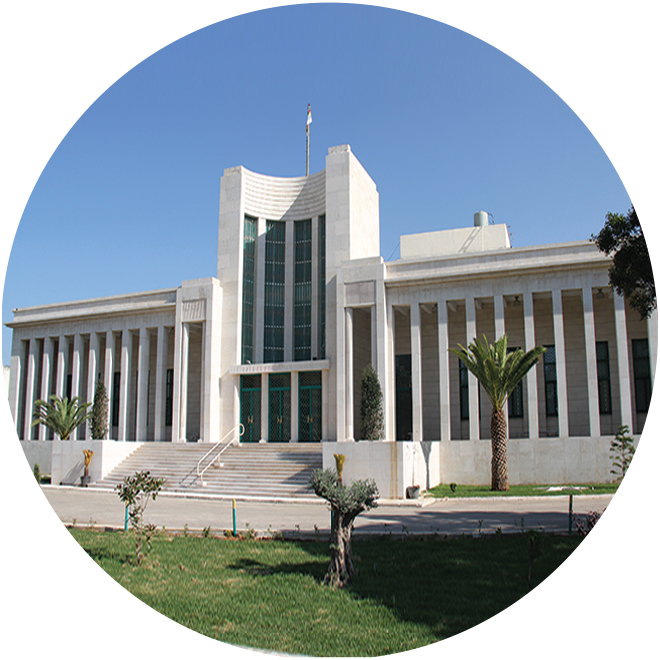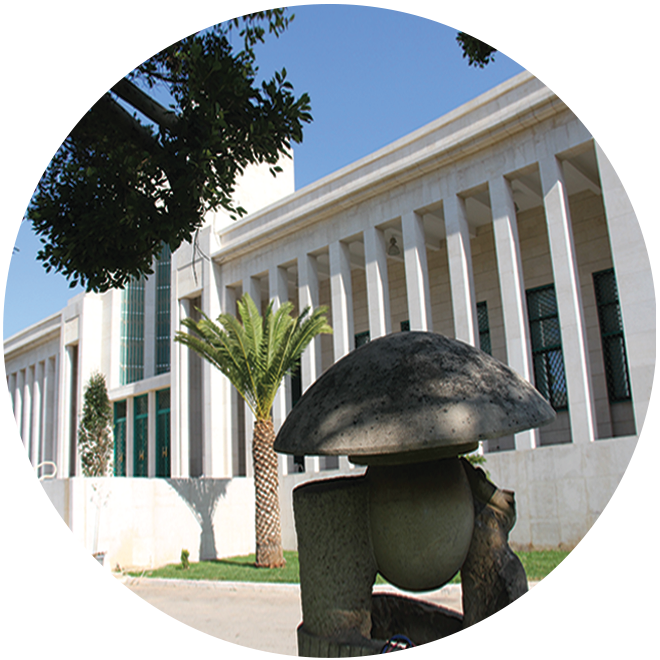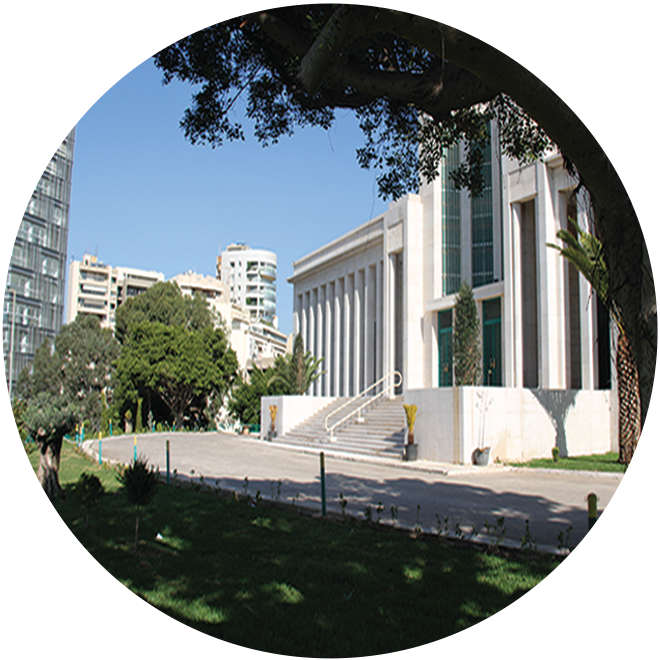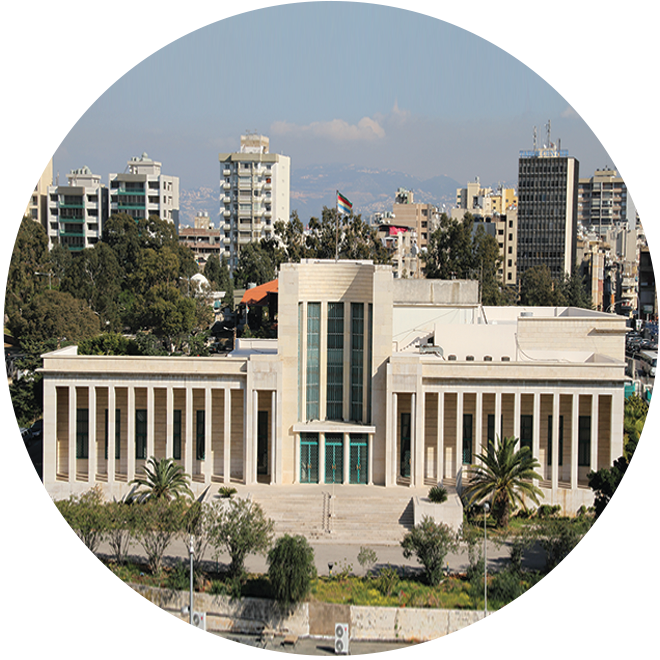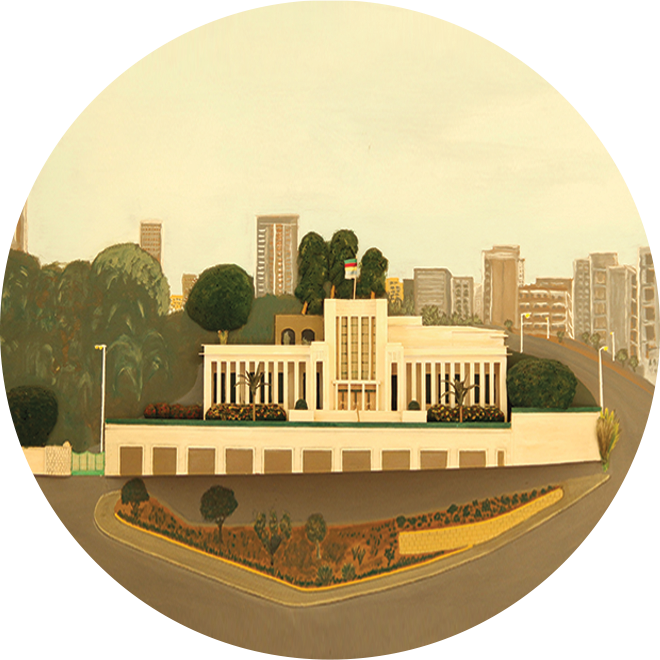About Greater Bairam (Al Adha Holiday)
First: In regard of the Meaning of Greater Bairam (Al Adha Holiday):
It is called a holiday (Eid) because it brings about happiness and pleasure to the concerned; thus, the conventional meaning of holiday refers to any day of unification, where happiness is deeply rooted in the heart of every man. Since creation and man is trying to climb the ladder of civilization and progress; he determined time and assigned the dates of certain occasions he called holidays. Therefore, a holiday is a manifestation which implies many social and religious meanings.
Socially, a holiday is the day when social ties are renewed and emphasized on the basis of love, honesty and brotherhood. On this day, the rich remembers the poor - his brother in humanity - the strong remembers the weak, and the virtuous gives alms, and every house becomes concerned about happiness. Thereupon, as the sun of holiday rises, joy fills every heart and the smile is drawn on every lip.
Religiously, a holiday reveals thankfulness to God for fulfilling worship; it is a word not only uttered by the monotheist believer, but also felt when it agitates his heart with peacefulness and satisfaction to reveal joy and delight.
Second: The Mouwahidoune Druze Sect Holidays:
The Mouwahidoune Druze Sect does not celebrate special holidays, and since it is one of the Islamic sects, therefore, Greater Bairam (Turkish name of Al Adha Holiday) is of great significance. If fast breaking after fasting stands for pleasure in the worldly feast and for the pleasure the patient obedient feels at quenching his soul’s thirst at the sight of the Most Holy King on the Day of Judgment (The Last Day), then, Greater Bairam (Al Adha) is the holiday that follows the difficulty of pilgrimage and is an approach to God with the required sacrifice.
Third: The Greater Bairam (Al Adha Holiday):
When Dhul-Hijjah (of the Hegira year months) crescent appears every year, it is common among the members of the Mouwahidoune Druze sect to carry out many social and religious obligations; an extraordinary attempt and endeavor is perceived and they head for assembly rooms known as “majales”, cells “khalwat”, shrines, sanctuaries and dignified Sheikhs, seeking knowledge and bless by listening to their recitations and religious deliberations.
Most families feel blessed and happy to prepare for “Niql El Eid” (what is served of foods and beverages to guests on this occasion) at home, where they exchange “mojabarah” (having what is served of foods and beverages) and visits, seeking the bless of this yearly occasion to purify their hearts, renew their bonds and their unity and accept congratulations in conformity with the Exalted saying, “Help ye one another In righteousness and piety, But help ye not one another In sin and rancour.” (The Table Spread sura – verse 2)
Furthermore, it is recommended that the Mouwahidoune Druze vow the first ten days known as “Oshour Al Eid” of the blessed month for abstinence, fasting, prayer, paying alms, the invocation of God seeking His forgiveness and satisfaction with good deeds, and feeling the coming of this Holiday. Besides, the Sheikhs and disciples burn the midnight oil in “mojahada,”* recitation and seeking forgiveness, recalling the Qur’anic verse, “By the Break of Day; By the Nights twice five” (The Break of Day sura – verses 1- 2), representing a state of ritual consecration in their organs and hearts so their intentions are pure and the meaning of sacrifice “odhiah” is fulfilled.
Religiously speaking, the target objective of “Al Adha” is the sacrifice to be offered to God, Most Glorified, Most Exalted, showing our obedience, and decisively proving our readiness to abandon all that we own of worldly pleasures and possessions for the sake of goodness and all its meanings - as detesting antagonism - and being habituated to all that is spiritually gracious.
The sacrifice “qorban” is a name, known since the times of pre-Islam “Jahliah”, and attributed to all that approaches God. The story of Habeel and Qabeel stands as the best witness for the importance of sacrifice; it is the first story in the course of prophets in the epoch of Adam (Peace be upon him “Pbuh”). It is said that Qabeel wanted to commit a sin, and when his brother Habeel forbade him to do so, a fight took place; accordingly, the two sought their father’s advice who told them to go and offer a sacrifice to God and whose sacrifice is accepted then his saying would be accepted as well. Habeel, who was a shepherd, offered the best ram of his sheep and his sacrifice was accepted; whereas, Qabeel, who was a farmer, offered the worst of his wheat and, thus, his sacrifice was not accepted. When their father was acknowledged of what had happened, he congratulated Habeel and consoled Qabeel asking him to turn to God in repentance. Consequently, Qabeel was absolutely furious and threatened to kill his brother.
We infer from this story an avowal of the Creator’s oneness (Most Exalted, Most Glorified) and of His messengers and prophets and the prohibition of the forbidden and disobedience; besides, it represents the conflict of soul between good and evil.
To know the meaning of Al Adha in its Islamic approach, we should refer to the Sunna of Prophet Abraham (pbuh) who lived about two thousand five hundred years before the Islam. Abraham saw in vision that God (Most Exalted, Most Glorified) bid him to sacrifice his son; the visions of prophets are considered to be “inspirations”, so, as he woke up, God’s prophet Abraham (pbuh) hurried to carry out God’s command without hesitation and asked his son to go with him to offer a sacrifice to God (The Great and Almighty) taking with him a rope and a knife; they both left and walked through the mountains. His son asked, “Father, where is the sacrifice?” Abraham replied, “Oh my son! I see in vision That I offer thee in sacrifice: Now see what is thou view!” (The Ranks sura – verse 102); the lad surrendered saying, “O my father! Do as thou art commanded! Thou will find me, If God so wills one “Practising Patience and Constancy! (The Ranks sura – verse 102).
* where you have to struggle and exert effort to leave your bed and stand between the hands of Allah.
As both surrendered i.e submitted to God’s will, suddenly, a voice called Abraham (pbuh), “Thou hast already fulfilled The vision! – thus indeed Do We reward Those who do right – For this was obviously A trial – And We ransomed him With a momentous sacrifice.” (The Ranks sura – verses 105-106-107) The Almighty God sent Abraham a great ram as a sacrifice to immolate for his son.
The best to infer of this story is the obedience to God (the Great and Almighty) and the submission and resignation to His will.
It is true that Al Adha is prayer and sacrifice i.e sacrifice with anything as a means of thankfulness. Interpreters said that prayer and sacrifice were meant to be the prayer of El Eid – a pure prayer for God’s sake – and sacrifice is offering the best of cattle of Arab possessions; for that reason, man has to offer the best of what he owns for God (Most Exalted, Most Glorified).
The Almighty God said to the Seal (last) of prophets and the master of messengers (pbuh), “To thee have We Granted the Fount (of Abundance). Therefore to thy Lord Turn in Prayer And Sacrifice. (The Abundance sura – verses 1-2); it is a call for the prophet to turn in prayer and sacrifice in remembrance of God's bounty and provision for mankind, and an evidence to God’s inevitable promise; this world is our chance to give, and His saying, “If ye are grateful, I will Add more (favours) unto you;” (Abraham sura – verse 7) is only but a stipulation after thankfulness for what has preceded of His benevolence.
It is mentioned in a Holy Hadith, “My servant, I am generous, be generous; I am merciful, be merciful; I am thankful, be thankful.” The Greater Bairam (Al Adha) is an embodiment of the Holy Hadith in its most transcendental images; every prayer in obedience is a holiday (Eid); every sacrifice in obedience is a holiday, to whoever apprehends the meaning of approaching the Almighty in extolment and expenditure for His own sake, since this stands as a deposit in the safes of the Kingdom, seen with certainty by the benevolent and righteous of whom He, the Exalted and Glorified said, “The righteous (will be) Amid Gardens And fountains (Of clear-flowing water) (Al Hijr sura – verse 45). He also said, “They were in the habit Of sleeping but little By night, And in the hours Of early dawn, They (were found) praying For Forgiveness; And in their wealth And possessions (was remembered) The right of the (needy,) Him who asked and him who (for some reason) was Prevented (from asking).” (Who scatter sura – verses 17-18-19).
If sacrifice offered by the pious in Al Adha means approaching God and avoiding hell suffering, then it is a celebration that exceeds the historical time limits to be a feast celebrated to express the eternal happiness to be on the Day of judgment and whose end could never be determined by history.
Besides, if offering a ransom and a sacrifice worthy of the eternal happiness achieved is inevitable, therefore, the flesh and blood of cattle – though should be offered – is insufficient because it belongs to the world of mortality, whereas the soul is immortal and rewarded by God with eternal felicity if pledged in loyalty to Him; so rejoice at the pledge for it is a great victory.
Man is in between volition and impulsion; he is given the free will to choose among all that is within his capacity and psychological, physical and mental abilities and others, and thus, is responsible before God and society. The Almighty made it clear to us the meaning of the Day of Judgment and that this world is a stop-over, while we make adequate preparations for our journey towards eternal bliss in the hereafter. The world is a bridge to the hereafter; this is the inevitable promise of the Almighty God in many of his Holy Qura’nic verses. Perhaps, the wisdom of not mentioning the date of the Day of judgment is to prompt man to stay alert and hurry to seek forgiveness and repentance where He said, “That they might know That the promise of God Is true, and that there can be no doubt about the Hour of Judgment.” (The Cave sura – verse 21) He also said, ”We shall set up scales Of justice for the Day Of judgment, so that Not a soul will be dealt with Unjustly in the least (The Prophets sura – verse 47)..
Therefore, man’s actions are the scale of his profits and losses; his good deeds in this world sum up in the hereafter world. How often we do feel that we are in need of true sacrifice in our daily lives and in the course of our societies, homelands and mankind to enhance our humanity as youth or elders - everyone in his own field and within his own capacity – the worker at work; the teacher at performance; the trader at business, the administrator at transactions; the student and teenager at open-mindedness, learning and development; and the woman at the mission of nursing, upbringing and discipline! Does not duty call us to sacrifice and protect the man inside us, for the Almighty said, “Then shall anyone who Has done an atom’s weight Of good, see it! And anyone who Has done an atom’s weight Of evi, shall see it.” (The Convulsion sura – verses 7-8)?
Our sons should never forget their legacy and honorable and noble traditions they were brought up to and that were rooted in their hearts. In this course, we must recall the standards that guide seekers of Tawheed and that are based on: the principles of belief in the divine justice; abiding by the limits set forth by the Glorified and the Almighty God to his men; the endeavor of man, the most dignified creatures, to seek and implement knowledge; depending on the Intellect, wisdom and fairness in actions and speech; abiding by virtues, honor and piety in actions; distinguishing the bidden from the forbidden and constantly being in a state of submission and resignation to God’s divine will.
Issued by the Bureau of Mashyakhat Al Aql of
the Mouwahidoune Druze Sect – Beirut
on the occasion of Al Adha Holiday for
the year 1429 Hegira corresponding to the year 2008 A.D.
May God return in goodness, prosperity and blesses









